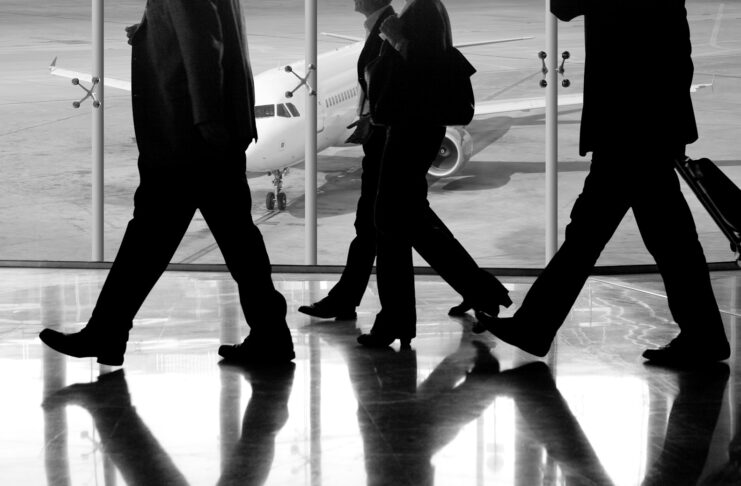Employers are not doing enough to protect and support diverse employees who travel for work, according to new data released ahead of Pride Month in June.
Research from Business Travel Show Europe, an annual exhibition held in London, reveals that business travel policies and programmes are failing to keep pace with wider organisational commitments to equity, diversity and wellbeing, with inclusion measures for minority and underrepresented groups in steady decline.
The findings, based on a survey conducted in March of 115 corporate travel and procurement professionals, show that 55% do not offer any special consideration for LGBTQ+ travellers. That’s a slight increase from 54% in 2024.
Just 22% currently offer dedicated support, down from 27% the previous year, and only 9% plan to introduce it. It’s a trend that suggests inclusion, while frequently discussed at policy level, is not consistently embedded in practical travel planning or risk management.
Declining Support Across Key Groups
The LGBTQ+ community is not the only group seeing reduced support. The survey found that just 29% of organisations consider the specific needs of solo women travellers, down from 36% in 2024, despite growing awareness of gender-related risks, particularly in international or higher-risk locations.
Travel policies are also falling short on neurodiversity. Only 15% of respondents said they take account of neurodivergent travellers, a decline from 18% last year, and a contrast to estimates that as many as one in five people globally are neurodivergent.
The needs of employees with accessibility requirements have similarly been neglected, with support falling to 35%, from 43% in 2024 and 48% in 2023.
“The findings are concerning given that we are seeing increased risk to minority groups of travellers,” said Carolyn Pearson, CEO of business travel safety consultancy Maiden Voyage.
“We know that women face specific challenges related to pregnancy — such as Zika virus exposure — varying airline fit-to-fly protocols and menopause supplements that are illegal in some countries,” she said.
“Likewise, LGBTQ+ employees face severe safety threats and travellers with disabilities face unique challenges related to accessibility and accommodation, sometimes leading to serious disruptions to their travel plans.”
Pearson added that “[e]mployers have a duty of care toward their employees and appropriately preparing employees to travel is a better outcome for all — morally, fiscally and legally.”
Wellbeing Gaps Undermine Inclusion Efforts
The lack of consideration for diverse travellers points to broader shortcomings in how organisations approach workplace wellbeing and inclusion, say experts. Despite high-level commitments to diversity, equity and inclusion (DEI), the survey suggests that these values are not always translated into specific, risk-informed travel strategies, particularly where minority groups are concerned.
Support for religious or ethnic minority travellers was also low, with only 17% of respondents offering specific accommodations for faith, race or religious requirements. Just 8% considered the needs of Jewish travellers, and 9% catered for Orthodox religious travellers. Meanwhile, inclusion of younger and older employees remains limited, with only 22% and 20% respectively included in policy considerations — both figures lower than last year.
While cost is often assumed to be a barrier to more inclusive provision, the data suggests otherwise. Most respondents who do not currently include minority groups in their travel policies did not cite financial constraints as the reason. And some categories — such as support for neurodivergent or LGBTQ+ travellers — saw no respondents say it was “too costly”. This raises the possibility that a lack of knowledge, awareness or organisational will may be to blame.
Bridging the Inclusion Gap
According to Jonathan Carter-Chapman, marketing director at Business Travel Show Europe, employers have an opportunity to take a more proactive role in ensuring that business travel is safe, inclusive and reflective of their broader values.
“The results from this year’s survey highlight that there is still important work to be done to support minority groups when travelling for business,” he said. “Knowledge and understanding of the requirements of different groups is increasing all the time and so too is research on the valuable contribution all sections of society can make to business performance and wider economic growth.”
He added: “Whilst some of those surveyed have stated they are planning to include minority groups in their business travel policies and programmes this year, the majority are not. And whilst cost isn’t seen as a barrier for most, the results suggest it is perhaps a lack of willing.”
The timing of the survey, ahead of Pride Month and just months after PwC’s Women in Work report forecasted a potential £43.5 billion GDP boost by 2030 through greater female workforce participation, shows the strategic importance of inclusion. Failing to address the wellbeing and safety needs of travelling employees not only poses moral and legal risks but may also hinder long-term performance and retention.
The findings will be discussed at Business Travel Show Europe, taking place at ExCeL London from 25–26 June 2025 and featuring a session on applying inclusive ESG strategies in business travel programmes. Attendance is free for qualified travel buyers, procurement professionals and EAs and PAs who manage bookings for their organisations, and registration is open.


